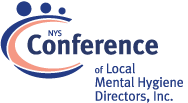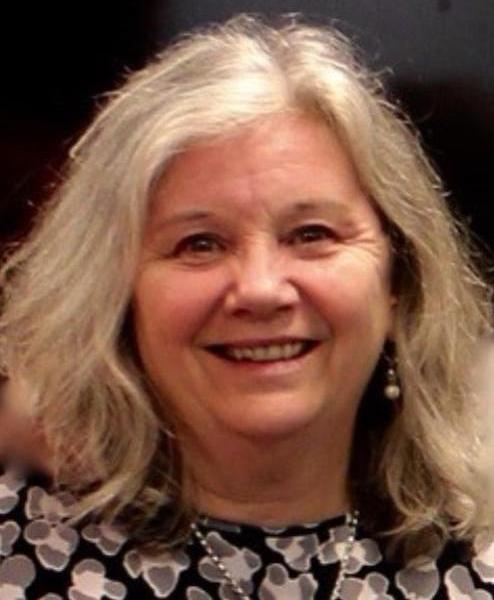
Advancing Public Policies for People with Mental Illness, Chemical Dependency or Developmental Disabilities
|
|
 |
|
Governor Cuomo Announces $60 Million in Awards to Mental Health and Addiction Healthcare Providers to Lower Cost and Improve Outcomes
Governor Andrew M. Cuomo yesterday announced New York will issue $60 million in awards over three years to mental health and addiction services providers as part of the transformation of the State's Medicaid system. The awards will aid behavioral health providers transform to a business model of Value-Based Payment, which rewards quality of care and better health outcomes, rather than the volume of services they provide.
Governor Cuomo initiated the State's Medicaid Redesign Team in 2011 to fundamentally restructure New York's Medicaid program to improve health, enhance quality, and lower healthcare costs. Unlike other states' strategies to redesign Medicaid which have relied on taking away benefits from low-income people or by cutting provider payment rates as ways to cut Medicaid costs, New York has successfully controlled costs while improving the quality of care.
The funds will be awarded to 19 selected networks of behavioral healthcare providers, called Behavioral Health Care Collaboratives helping them to integrate care across the entire spectrum of physical and behavioral health services. Read more
here.
|
|
 |
|
|
 |
|
Finger Lakes Region Included in NYS Crisis Intervention Services Initiative (CIT)
Ontario, Wayne and Seneca Counties are pleased to announce that we have been selected as recipients of technical assistance for enhancing our community's crisis intervention services and response. This is a great opportunity - not only to provide training for our law enforcement, but more importantly to closely examine our present systems of care. We will engage in Sequential Intercept Mapping, assessing our strengths, weakness and gaps. CIT is not a one-and-done training; more so it is the development of ongoing and sustainable collaboration and partnerships with law enforcement, criminal justice, the mental health system, emergency services and consumers and family advocates. We are very excited for this opportunity to enhance our services to each of our communities.
Diane Johnston, LCSW-R, Ontario
James Haitz, LCSW-R, Wayne
Margaret Morse, LMSW, Seneca
|
|
 |
|
|
 |
|
January 17, 12 - 1:30 pm, MCTAC
January 17, 12:30 - 1:30 pm, Purdue Extension
January 18, 2 - 3:30 pm, National Council for Behavioral Health
The Power Of Mental Wellness: Wellness In Psychiatry
January 23, 12 - 1 pm, PsychU
Implementing Integrated Dual Disorder Treatment Programs: A Case Study
January 30, 12 - 1 pm, PsychU
The Foundations of Infant and Early Childhood Mental Health
January 31, 12 - 1 pm, CTAC
January 31, 12 - 1 pm, National Council for Behavioral Health
Caring For The Patient With Schizophrenia: Nursing, Pharmacy, & Social Work Perspectives
February 5, 12 - 1 pm, PsychU
Best Practices in Training and Treatment of Infant-Early Childhood Mental Health Concerns
February 16, 12 - 1 pm, CTAC
March 28, 12 - 1 pm, PsychU
|
|
 |
|

|
Mental Hygiene Planning Committee Meeting
January 9: 11 am - 1 pm
In-Person, 41 State Street, Albany
Children & Families Committee Meeting
January 16: 11:30 am - 1 pm,
GTM
Directors & Executive Committee Combined Meeting
January 17: 9:30 - 12:30 pm
GTM
Developmental Disabilities Committee Meeting
January 25: 1 - 2:30 pm, GTM
Contact CLMHD for all Call In and Go To Meeting information, 518.462.9422
|
|
|
|
CLMHD Welcomes Donna DeWan, RPC Project Director

The Conference is proud to introduce Donna DeWan as the new Project Director for Regional Planning Consortiums (RPCs). Under her management and coordination, RPCs will continue to monitor and problem solve around the transition of behavioral health care services into a Medicaid Managed Care benefit, and around other systems transformation initiatives which impact the behavioral healthcare throughout the state.
Prior to this position, Donna was the Director of Corporate Programs and a National Trainer with the National Council for Behavioral Health in Washington, DC, leading an innovative collaboration with Aetna Behavioral Health to bring Mental Health First Aid to the workplace. Donna has over 25 years of experience working for and consulting with Fortune 100 companies, holding leadership positions with Merrill Lynch, Wells Fargo, Lehman Brothers and American Express. Her consulting portfolio includes companies such as AT&T, Proctor & Gamble, Colgate Palmolive, Bell Labs, and Hoffman LaRoche, to name a few. Her work has spanned across the United States, Canada, Europe, Asia and the Middle East, presenting topics on health, wellness, cross cultural adjustment, team building as well as providing critical incident consultation and threat assessment. Donna has also worked with the US military counseling soldiers deploying to and returning from the Balkans, Afghanistan and Iraq. She holds Master's degrees in Psychology and Criminal Justice. As a licensed professional counselor, certified clinical trauma professional and a licensed massage therapist, she believes in a trauma informed, total health and integrative approach to helping and healing.
Donna looks forward to working with the RPC Team to continue the successful implementation of RPCs across the state.
|
|
 |
|
HHS Relaxes Rules on Sharing Substance Abuse Patients' Information
HHS has finalized a rule that aims to make it easier for insurers and providers to share substance abuse patients' data with other parties that are involved in providing and paying for that person's care.
Under the current rules, insurance companies and providers would need to obtain consent forms from patients to share their information with every company involved in their care. That red tape sometimes slowed access to care or reimbursement.
But HHS is looking to change that. The technical rule-making issued Tuesday and effective Feb. 3 offers providers and payers more flexibility to share information with third parties by allowing a single consent form to apply to that company's contractors subcontractors, and legal representatives.
|
|
 |
|
State's Community Health Centers Show Caution Amid Funding Uncertainties
Some community health centers serving low-income patients in New York are scaling back their plans as they await a long-term federal funding plan.
Congress, which allowed the centers' federal grant funding to lapse at the end of September, approved an eleventh-hour fix in December that provides stopgap funding through March 31, along with temporary funding for the Children's Health Insurance Program.
"We've heard from some of our centers that they're not going forward with programs they had planned for the coming year," said Rose Duhan, president and chief executive of the Community Health Care Association of New York State. Read more
here.
|
|
 |
|
Governor Cuomo Launches Campaign to Warn New Yorkers About Fraudulent Addiction Treatment Referral Services
Governor Andrew M. Cuomo last week announced a new public awareness campaign to crack down on "patient brokering," a practice where brokers collect payments from addiction treatment providers in exchange for referring patients to those programs. The campaign warns New Yorkers about the fraudulent practice and urges that these brokers be reported.
The campaign was developed through a collaboration between OASAS and the New York Association of Alcoholism and Substance Abuse Providers and features posters encouraging people to report patient brokering activities to OASAS. The posters are available for download here and will also be emailed out to treatment providers across the state.
This awareness campaign is one of several initiatives aimed at stopping patient brokering. OASAS recently issued a directive that requires referrals to be delivered by OASAS-certified and -credentialed professionals, who are prohibited from receiving referral fees. Read more
here.
|
|
 |
|
Training The Next Generation Of Medical Providers In The Era Of Mass Incarceration
For every 100,000 people in the United States, 700 are incarcerated, a rate higher than any other nation on earth. The 2.17 million Americans experiencing incarceration have disproportionately high rates of chronic illness, infectious disease, substance use disorder, dental disease, and serious mental illness. Individuals who are incarcerated are, however, the only US population with a constitutionally guaranteed right to health care.
This establishes an opportunity, as a recent Health Affairs article described, for providers with knowledge of the criminal justice system and the effects of incarceration to make a big impact on the health of this exceptionally vulnerable population. One approach to improve both the size and knowledge of the correctional health workforce is to expand opportunities for health professions trainees to learn about the health harms associated with incarceration, visit correctional facilities, and have experience caring for patients who are incarcerated.
Yet the majority of health care trainees are not exposed to information on the relationship between incarceration and health. Read more here.
|
|
 |
|
Colleges Offer 'Recovery Housing' in Response to Opioid Crisis
Recovery programs on college campuses, often including special dorms, are multiplying fast amid the opioid crisis, spreading from a handful of campuses to around 100 across the country.
Most campuses offer substance-free housing - no alcohol or drugs allowed. But recovery housing goes further. With services like on-site counselors, peer support groups and sober social events, recovery housing is tailor-made for students recovering from substance abuse who need a supportive environment where they can stay clean amid the pressures of college. Read more
here.
|
|
 |
|
Pediatricians Screen More Kids for Mental Health Issues if They Receive Hands-On Support
Recovery programs on college campuses, often including special dorms, are multiplying fast amid the opioid crisis, spreading from a handful of campuses to around 100 across the country.A new study suggests many more pediatricians would make mental health screenings an integral part of a child's annual checkup if they received training and support through a proven and powerful method used to improve health care processes and outcomes.
Results of the multidisciplinary study led by Children's National Health System and published in Pediatrics, showed screening rates improved from one percent to 74 percent during the 15-month study. A total of 10 pediatric practices and 107 individual providers in the Washington, D.C., area voluntarily participated in the study.
"This study is an important first step towards early identification of children with mental health concerns," says Lee S. Beers, M.D., the study's lead author. "If you identify and treat children with mental health concerns earlier, you're going to see better outcomes."
In this country, approximately 13 percent of youth live with a serious mental illness, but only about 20 percent of them get the help they need, according to the DC Collaborative for Mental Health in Pediatric Primary Care. Read more here.
|
|
|